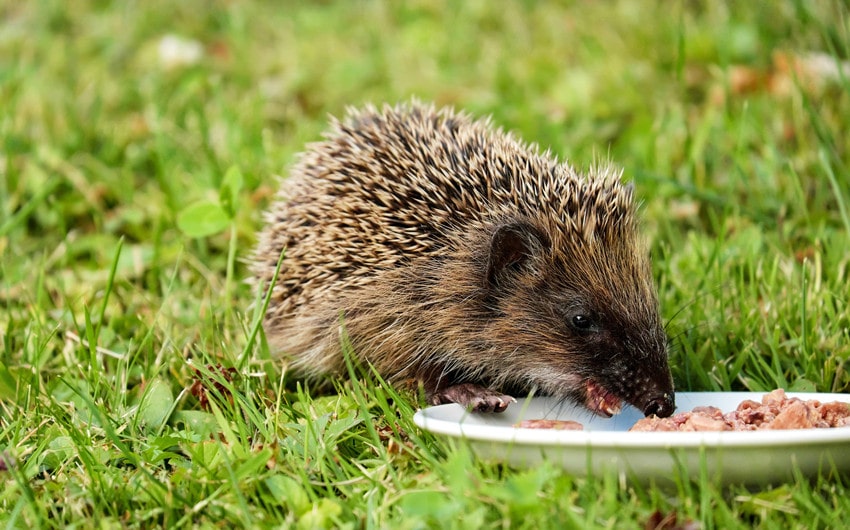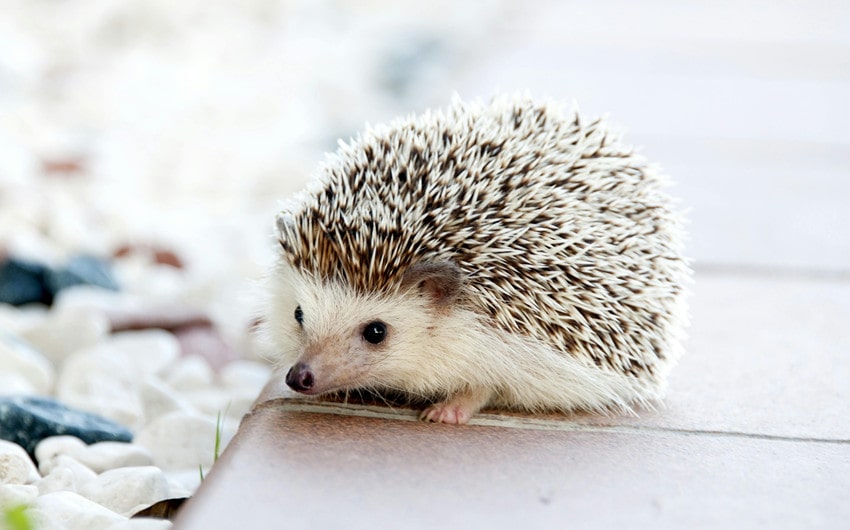Everything You Need to Know About a Hedgehog as a Pet
Looking for a pet that’s a little different but still full of charm? Hedgehogs might just be the perfect choice. These small, spiky creatures have become increasingly popular as pets due to their unique personalities and low-maintenance care. If you’re curious about what it’s like to have a hedgehog as a pet, you’re not alone.
Many people are discovering the joys of these nocturnal companions. In this guide, we’ll explore everything you need to know, from their behavior to daily care, helping you decide if a hedgehog is the right fit for your home.
Understanding Hedgehog Behavior and Personality

Hedgehogs may be small, but they have distinct and fascinating personalities that can vary from one individual to another. By understanding their behavior, you can create a better bond with your pet and ensure their well-being.
General Temperament
Hedgehogs are naturally shy and solitary creatures. Unlike some other pets, they are not social animals and typically prefer to be alone. They may curl into a ball, displaying their sharp quills, when they feel scared or threatened. This is a natural defense mechanism, and over time, with regular handling and gentle care, your hedgehog can learn to trust you and relax around you. However, patience is key; building trust can take time.
Activity Patterns
Hedgehogs are nocturnal, which means they are most active during the night. They will spend their daytime hours sleeping and prefer a quiet, dark environment. In the evening or night, you may notice your hedgehog becoming more lively, running on their exercise wheel, exploring their enclosure, or foraging for food. If you’re a night owl yourself, this can make them a great pet to observe when you’re winding down in the evening.
Curiosity and Exploration
Though they may be cautious, hedgehogs are naturally curious animals. They enjoy exploring new environments and are often seen sniffing around their space to investigate smells and objects. You can enrich their environment by introducing tunnels, small toys, or even hiding treats around their cage to encourage their natural foraging instincts.
Interaction with Humans
While hedgehogs are not naturally affectionate pets, they can become accustomed to human interaction and may even seek out attention in their own way. With regular handling, many hedgehogs become more comfortable and will allow their owners to pick them up without rolling into a defensive ball. It’s important to approach your hedgehog slowly and gently to avoid startling them. Some hedgehogs may remain more aloof, while others can become quite friendly over time.
Sounds and Communication
Hedgehogs may not be vocal like dogs or cats, but they do make noises that help communicate their feelings. They may hiss or make a popping sound when they feel threatened or frightened, while a calm and content hedgehog might produce soft, snuffling noises. Understanding these sounds can help you gauge their mood and comfort level.
Unique Personality Traits
Each hedgehog has its own unique personality. Some may be more playful and curious, while others could be more reserved and cautious. This means that no two hedgehogs will act exactly the same, which can make getting to know your hedgehog a fun and rewarding experience. With time, you’ll discover their likes, dislikes, and habits, which will strengthen your bond.
Caring for a Pet Hedgehog: Essential Needs

Taking care of a hedgehog requires understanding their specific needs to ensure they remain happy, healthy, and well-adjusted. Although hedgehogs are relatively low-maintenance compared to other pets, they have unique requirements that every owner should be aware of. This section covers the essential aspects of hedgehog care, from their diet to their habitat.
Diet and Nutrition
Hedgehogs are omnivores, and their diet needs to be balanced to keep them healthy. The foundation of a pet hedgehog’s diet typically consists of high-quality commercial hedgehog food or cat food that is low in fat and high in protein. In addition to dry food, you should supplement their diet with fresh, healthy options:
- Insects: Hedgehogs love mealworms, crickets, and other insects. These provide essential protein and encourage natural foraging behaviors.
- Fruits and Vegetables: Small amounts of safe fruits (like apples, bananas, or berries) and vegetables (like carrots and leafy greens) can be offered occasionally as treats.
- Fresh Water: A constant supply of fresh, clean water is crucial. Many owners find that a water bottle works best to prevent spills, but you can also use a shallow water dish.
Be cautious about overfeeding treats, especially sugary or fatty ones, as hedgehogs can easily become overweight, which can lead to serious health issues.
Housing
Creating the right habitat for your hedgehog is essential to their comfort and well-being. Here’s what you’ll need to keep in mind:
- Cage Size: Hedgehogs need ample space to roam and explore. A minimum cage size of 4 square feet is recommended, but larger is always better. Multi-level cages or playpens are excellent for offering more room.
- Temperature Control: Hedgehogs are sensitive to temperature. They thrive in an environment that stays between 72°F and 80°F (22°C and 27°C). If their enclosure becomes too cold, they might attempt to hibernate, which can be dangerous for domesticated hedgehogs. Heat lamps or heating pads can help regulate their temperature.
- Bedding: Avoid using wood shavings like pine or cedar, as they can be harmful to your hedgehog’s respiratory system. Instead, use paper-based bedding or fleece liners, which are soft, absorbent, and safe.
- Hiding Spots: Hedgehogs like to feel secure, so provide them with hiding spots such as igloos, small houses, or tunnels. These hiding places help them feel safe and reduce stress.
Exercise and Stimulation
Hedgehogs are active animals and need plenty of exercise to stay healthy. Without enough stimulation, they can become bored or overweight. Here are some key ways to ensure your hedgehog gets enough exercise:
- Exercise Wheel: A solid-surface wheel is a must for any hedgehog enclosure. Hedgehogs love running at night, and a wheel helps them burn off energy. Avoid wire wheels, as they can injure their feet.
- Toys and Tunnels: Toys that encourage exploration and curiosity are great for keeping your hedgehog entertained. Tunnels, chew toys, and balls are all excellent choices. Make sure toys are hedgehog-safe and don’t have small parts that can be swallowed.
- Foraging and Exploration: Hedgehogs love to forage for food. Hide small treats around their enclosure to encourage them to explore and keep their minds active.
Hygiene
Maintaining your hedgehog’s hygiene is crucial to their health. Here are some tips on keeping both their environment and their bodies clean:
- Cleaning the Cage: Spot-clean the cage daily to remove droppings and uneaten food, and perform a deeper clean at least once a week. This involves replacing the bedding, wiping down surfaces, and disinfecting toys and accessories.
- Foot Baths: Hedgehogs often get dirty feet from running on their wheel. You can give them occasional foot baths in shallow, lukewarm water to clean them. Be sure to dry their feet thoroughly after.
- Nail Trimming: Hedgehogs’ nails grow quickly, and they will need regular trimming to prevent overgrowth, which can cause discomfort or injury. If you’re uncomfortable doing this yourself, your vet can help.
- Bathing: While hedgehogs don’t require frequent baths, you can give them an occasional bath if they become particularly dirty or smelly. Use lukewarm water and a gentle, unscented soap. Avoid getting water in their ears and always make sure they are thoroughly dried to prevent them from getting chilled.
Lighting
Although hedgehogs are nocturnal, they still require a proper day-night cycle to maintain their internal rhythms. If your hedgehog’s enclosure is kept in a room without natural light, you may need to use artificial lighting to simulate a 12-hour light and 12-hour dark cycle. This can help regulate their sleep patterns and overall well-being.
Enrichment
Mental stimulation is just as important as physical exercise. Hedgehogs enjoy exploring their environment and encountering new textures, scents, and toys. Rotating their toys, adding different types of hideaways, and introducing new objects to their cage will keep them engaged. You can also provide hedgehogs with opportunities for supervised out-of-cage exploration in a safe, enclosed area.
Hedgehog Health and Common Health Issues

Just like any other pet, hedgehogs require regular care and attention to maintain their health. While hedgehogs are generally hardy animals, there are some common health issues that owners should be aware of to ensure their pet stays happy and healthy. Early detection and prevention are key to keeping your hedgehog in good condition.
Signs of a Healthy Hedgehog
To begin with, it’s important to recognize what a healthy hedgehog looks like. A healthy hedgehog will:
- Have bright, clear eyes.
- Display alertness, especially during their active hours.
- Have clean skin and quills without signs of irritation.
- Maintain a healthy weight, without being too thin or overweight.
- Have a shiny, smooth coat without bald patches.
- Show interest in exploring their environment and engaging in normal activities such as eating, drinking, and running on their wheel.
If your hedgehog exhibits any unusual behaviors or physical symptoms, it could be a sign that something is wrong. Regularly monitoring your hedgehog’s health will help you spot problems early.
Common Health Issues in Hedgehogs
While hedgehogs can be relatively easy to care for, they can still suffer from various health problems. Some of the most common issues include:
1. Mites
One of the most frequent health issues in hedgehogs is mites. These tiny parasites can cause itching, discomfort, and loss of quills. If your hedgehog is scratching more than usual, losing quills in patches, or developing dry, flaky skin, they may have mites.
- Prevention: Keep their enclosure clean and avoid using contaminated bedding.
- Treatment: A vet can prescribe a mite treatment that is safe for hedgehogs, such as topical or oral medication.
2. Obesity
Hedgehogs can easily become overweight, especially if they’re not getting enough exercise or are being overfed. Obesity can lead to a host of other health issues, including joint problems, heart disease, and liver issues.
- Prevention: Ensure your hedgehog has a balanced diet and plenty of opportunities for exercise, especially with the use of an exercise wheel.
- Treatment: If your hedgehog is gaining too much weight, adjust their diet by cutting back on treats and offering lower-calorie food options. Increase their exercise with toys and out-of-cage exploration.
3. Respiratory Infections
Hedgehogs are prone to respiratory issues, especially if they are exposed to cold temperatures or drafts. Symptoms of a respiratory infection include sneezing, coughing, difficulty breathing, nasal discharge, and lethargy.
- Prevention: Keep your hedgehog’s enclosure at the correct temperature (72-80°F) and ensure they are not exposed to cold air or damp conditions.
- Treatment: If your hedgehog shows signs of a respiratory infection, take them to the vet for antibiotics and other necessary care.
4. Dental Issues
Hedgehogs can suffer from dental problems, such as overgrown teeth, gum disease, or tooth decay. These problems often arise from poor diet or the lack of appropriate chewing materials.
- Prevention: Feed your hedgehog a balanced diet with the right texture, including hard kibble that helps keep their teeth clean.
- Treatment: If your hedgehog has difficulty eating, drooling, or has visible dental issues, consult your vet. Dental treatment may involve tooth trimming or cleaning.
5. Wobbly Hedgehog Syndrome (WHS)
WHS is a neurological disease that affects the motor functions of hedgehogs. The cause of the disease is still unknown, but it results in progressive paralysis, beginning in the hind legs and moving upward. This condition is typically seen in hedgehogs under two years of age.
- Prevention: Unfortunately, there is no known way to prevent WHS, as the cause remains unidentified.
- Treatment: There is no cure for WHS. However, with veterinary advice, hedgehog owners can make their pet comfortable with supportive care, such as physical therapy, ensuring they can still eat and drink, and making their enclosure accessible.
6. Gastrointestinal Issues
Hedgehogs may develop gastrointestinal problems, including diarrhea, constipation, or bloating. These issues can be caused by diet changes, stress, or infections. Diarrhea, in particular, can quickly dehydrate your pet, making it important to act fast.
- Prevention: Feed your hedgehog a consistent, high-quality diet and avoid sudden changes in their food. Always provide clean water.
- Treatment: If you notice your hedgehog has irregular bowel movements, monitor their diet and environment. If the symptoms persist, seek veterinary care.
7. Tumors and Cancer
Hedgehogs are prone to tumors, particularly as they age. Tumors can develop in various parts of the body, including the skin, mouth, and internal organs. Signs of tumors may include lumps, weight loss, lack of appetite, or changes in behavior.
- Prevention: There is no guaranteed way to prevent tumors, but keeping your hedgehog healthy with a good diet and regular vet checkups can help with early detection.
- Treatment: If you suspect your hedgehog has a tumor, a vet may recommend surgery or other treatments depending on the severity and location.
8. Skin Conditions
Hedgehogs can develop various skin conditions such as dry skin, fungal infections, or allergies. Symptoms may include redness, swelling, flaking, or excessive scratching.
- Prevention: Regularly clean the enclosure, avoid harsh chemicals or scented products near your hedgehog, and use proper bedding materials.
- Treatment: For persistent skin issues, consult a vet for appropriate antifungal treatments or skin care products.
When to Take Your Hedgehog to the Vet
Regular checkups with an exotic pet vet who is experienced with hedgehogs are recommended to ensure your pet stays healthy. Hedgehogs tend to hide signs of illness, so it’s essential to monitor them closely for any changes in behavior, eating habits, or physical appearance. If your hedgehog shows any signs of distress, such as lethargy, weight loss, difficulty breathing, or loss of appetite, contact a vet as soon as possible.
In addition to routine care, you should schedule an annual wellness check for your hedgehog to catch any potential health issues early.
Tips for Preventing Health Issues
- Maintain a Proper Diet: Feed your hedgehog a balanced diet that includes appropriate nutrition and occasional treats. Avoid feeding sugary or fatty foods too often.
- Keep the Enclosure Clean: Regular cleaning of the cage, bedding, and accessories can prevent infections and parasites.
- Monitor Temperature: Hedgehogs are sensitive to temperature changes. Use a thermometer to ensure their enclosure remains at the ideal temperature.
- Provide Exercise and Enrichment: Give your hedgehog opportunities for exercise and mental stimulation to keep them in good physical and mental health.
- Watch for Signs of Stress: Hedgehogs can become stressed from changes in their environment, loud noises, or too much handling. Try to maintain a calm, stable environment.
Socialization and Handling: How to Bond with Your Hedgehog

One of the most rewarding aspects of owning a hedgehog is building a bond with them over time. Hedgehogs are naturally shy, solitary animals, and socializing with them takes patience and care. However, with consistent effort and proper handling techniques, you can develop trust and a comfortable relationship with your hedgehog. In this section, we’ll explore key strategies to help you bond with your pet and ensure they feel safe and secure in your care.
Gaining Your Hedgehog’s Trust
Hedgehogs are known for their defensive nature, especially when they feel threatened. When scared, they may curl into a tight ball with their quills raised as a protective mechanism. To build a trusting relationship with your hedgehog, the key is to help them feel safe and secure in your presence.
1. Let Your Hedgehog Adjust to Its New Environment
When you first bring your hedgehog home, it’s important to give them some time to adjust to their new surroundings. The change in environment can be overwhelming for a hedgehog, and they may feel nervous or stressed. Allow them a few days to get comfortable in their enclosure without too much human interaction. During this time, avoid loud noises or sudden movements that could scare them. Let your hedgehog explore their new habitat at their own pace.
2. Approach Slowly and Gently
Once your hedgehog has had time to settle in, begin interacting with them slowly and gently. When approaching their enclosure, speak softly to let them know you’re nearby. Avoid sudden movements or loud sounds that could startle them. If your hedgehog is hiding or curled up, give them time to unroll and become active on their own. Consistency in your approach will help your hedgehog become accustomed to your presence and associate you with safety.
3. Introduce Your Scent
Hedgehogs rely heavily on their sense of smell, and familiarizing them with your scent is a crucial step in the bonding process. You can do this by placing an unwashed piece of clothing or a small cloth with your scent inside their enclosure. This will allow them to explore your scent in a non-threatening way. Over time, they will start to recognize you by your smell, which can help reduce their fear and anxiety when you’re nearby.
Tips for Handling a Hedgehog Safely
Handling a hedgehog can be intimidating at first, especially if they are in their defensive ball. However, with the right technique, you can safely and comfortably handle your hedgehog while helping them get used to human contact.
1. Handling for the First Time
When handling your hedgehog for the first time, make sure to approach them gently. Use both hands to scoop them up from underneath, supporting their body from beneath. If they are in a ball, wait for them to uncurl slightly, or you can gently coax them with a treat.
Wearing gloves may help at first if you’re nervous about their quills, but try to transition to bare hands once you’re more comfortable. Bare hands allow your hedgehog to get used to your skin’s texture and warmth, further strengthening the bond.
2. Be Patient with Their Reactions
Hedgehogs often take time to adjust to being handled. If your hedgehog curls into a ball or hisses when you pick them up, don’t take it personally—this is just their natural defense mechanism. Be patient and give them time to feel comfortable.
Hold them close to your body so they can feel the warmth and hear your heartbeat, which may help calm them down. Some hedgehogs will take longer to relax than others, but with regular, gentle handling, they will gradually become more comfortable.
3. Handle Them at Their Active Hours
Since hedgehogs are nocturnal, they are most active during the evening and nighttime. Trying to handle them during the day, when they’re naturally inclined to sleep, might cause them to be more irritable or stressed. Aim to interact with them during their waking hours, typically in the evening, when they’re more alert and receptive to socialization. This will help ensure a positive interaction and make them more responsive to bonding efforts.
Building Trust Over Time
Bonding with a hedgehog takes time and patience. Every hedgehog is different, and some may take longer than others to fully trust and bond with their owner. Here are some tips for fostering that trust over the long term:
1. Respect Their Personality
Not all hedgehogs will become cuddly or affectionate, and that’s okay. Each hedgehog has its own personality, and some may remain more aloof than others. The key is to respect their boundaries and not force interaction. Over time, they may surprise you with more openness and curiosity, but it’s important to let them come to you on their terms.
2. Create a Routine
Hedgehogs thrive on routine, and establishing a consistent interaction schedule can help them feel more comfortable. Try to handle your hedgehog at the same time every day, during their waking hours. This routine will help them understand that handling is a regular, safe part of their day, reducing anxiety and defensive behaviors.
3. Supervised Out-of-Cage Time
Allowing your hedgehog some supervised time outside of their cage can help them explore their surroundings and burn off energy. Use a safe, enclosed area for them to wander, and let them come to you naturally. Out-of-cage exploration provides mental stimulation and can be a great way to bond while observing their natural behaviors.
Recognizing a Bonded Hedgehog
A well-socialized and bonded hedgehog will show several signs of trust. These include:
- Uncurling from a ball quickly: Your hedgehog will uncurl from its defensive ball faster when they feel safe around you.
- Relaxed behavior: A comfortable hedgehog will exhibit calm, relaxed body language, such as not raising their quills and moving about with curiosity.
- Approaching you: Some hedgehogs may begin to approach their owner or show interest when they hear your voice or see you coming toward their enclosure.
- Accepting treats: A bonded hedgehog will eagerly accept treats from your hand, which shows they associate you with positive experiences.
Pros and Cons of Having a Hedgehog as a Pet

Hedgehogs are increasingly becoming popular pets due to their unique appearance and low-maintenance lifestyle. However, like any pet, they come with their own set of advantages and challenges. Understanding the pros and cons of having a hedgehog as a pet can help you decide if this spiky little creature is the right fit for you and your household.
Pros of Having a Hedgehog as a Pet
1. Low Maintenance
Compared to many other pets, hedgehogs are relatively low maintenance. They do not require the same level of attention or care as larger animals like dogs or cats. Hedgehogs do not need frequent bathing, they do not shed, and they are content spending time on their own. This makes them a great option for individuals with busy schedules who may not have time for a high-demand pet.
2. Unique and Interesting Pets
Hedgehogs are undoubtedly one of the most unique pets you can own. Their quills, tiny faces, and distinct behaviors make them fascinating to observe. Hedgehog owners often enjoy watching them explore their environment, curl into a ball when frightened, or scurry on their exercise wheel. Their exotic appearance and quirky personalities can be a real conversation starter.
3. Small and Space-Saving
Hedgehogs do not require a lot of space, making them ideal pets for people who live in small apartments or homes. A proper cage that is at least 4 square feet is sufficient, and their enclosures can be easily placed on a table or shelf. Unlike larger animals, they don’t need an entire room or backyard to roam around, which makes them suitable for urban living.
4. Quiet Pets
Hedgehogs are naturally quiet animals. They don’t bark, meow, or make loud noises, making them a great pet choice for people who live in apartments or shared housing where noise levels are a concern. Their soft snuffling and occasional clicking sounds are usually not disruptive, especially since they’re most active during nighttime when you’re likely winding down or sleeping.
5. Fun to Watch at Night
Since hedgehogs are nocturnal, they’re most active in the evening and nighttime. If you’re someone who enjoys winding down after a long day by watching your pet explore, run on its wheel, or eat, a hedgehog may be the perfect fit. Their nighttime activities can be highly entertaining, especially since they have curious and exploratory behaviors when awake.
6. Hypoallergenic
Hedgehogs can be a good choice for individuals who suffer from allergies. Unlike many furry pets that shed, hedgehogs have quills, and they produce very little dander, which reduces the risk of allergic reactions. This makes them a viable pet option for people who are allergic to more traditional pets like cats or dogs.
Cons of Having a Hedgehog as a Pet
1. Nocturnal Nature
While a hedgehog’s nocturnal lifestyle can be fascinating to some, it may be a downside for others. Hedgehogs sleep for most of the day and are awake during the evening and nighttime hours. If you’re someone who prefers a pet that’s active during the day, you might find it difficult to engage with your hedgehog. Additionally, they may make noise at night (such as running on their wheel), which could disturb light sleepers.
2. Prickly to Handle
Hedgehogs have quills that they can raise when they feel threatened or scared, making handling them a bit tricky for new owners. While their quills aren’t as sharp as a porcupine’s, they can still be uncomfortable to the touch. Handling your hedgehog requires patience and a gentle touch, as sudden movements can cause them to become defensive and curl into a ball of spikes. This prickly nature may be off-putting for people who are looking for a cuddly pet.
3. Requires Specialized Care
Although hedgehogs are relatively low maintenance, they still have specific care requirements that can make them a bit more challenging for first-time pet owners. Their diet needs to be carefully balanced with high-protein, low-fat food, and they require an enclosure that maintains a stable temperature between 72°F and 80°F.
Hedgehogs are also prone to certain health issues, such as respiratory infections and mites, so it’s important to monitor their health closely and take them to an exotic vet, which can be more expensive and harder to find than a typical vet.
4. Limited Social Interaction
Hedgehogs are solitary animals by nature. They do not need or want the social interaction that other pets like dogs or cats might crave. While they can become accustomed to human contact over time, they are not typically affectionate pets and may prefer to be left alone.
If you’re looking for a pet that enjoys being around you or seeks attention, a hedgehog might not fulfill those expectations. Their independent nature can feel isolating for owners seeking companionship.
5. Can Be Difficult to Bond With
Because hedgehogs are naturally shy and cautious, building a bond with your pet can take time and patience. It can be weeks or even months before a hedgehog feels comfortable around you, and even then, some hedgehogs remain aloof. This lack of immediate affection can be discouraging for people who are used to more affectionate pets.
6. Short Lifespan
Hedgehogs have a relatively short lifespan compared to other pets. On average, they live between 3 to 5 years, though some may live slightly longer with excellent care. This can be a downside for owners who are looking for a long-term companion, as the bond you develop with your hedgehog might feel all too brief.
7. Legal Restrictions
In some areas, hedgehogs are not legal to own as pets. There are state or local regulations in parts of the United States (such as California, Pennsylvania, and New York City) and in some countries where hedgehogs are classified as wild or exotic animals. This legal barrier can be a major con for people who want to own a hedgehog but live in a restricted area. It’s important to check the laws in your region before deciding to get a hedgehog.
Legal Considerations and Responsibilities

Before bringing a hedgehog into your home, it’s important to understand the legal implications and responsibilities that come with hedgehog ownership. Due to their classification as exotic animals, the regulations surrounding hedgehog ownership can vary significantly depending on where you live.
Legal Restrictions
Hedgehogs are not universally legal to own as pets in all regions. In certain states, cities, and countries, hedgehogs are considered wild or exotic animals, and their ownership is either banned or heavily regulated. Here are some key legal considerations:
- United States: In the U.S., hedgehogs are illegal to own in several states and municipalities, including California, Georgia, Hawaii, Pennsylvania, and some parts of New York City. The main reason for these restrictions is environmental concerns, as escaped or abandoned hedgehogs could potentially disrupt local ecosystems.
- Canada: Hedgehog ownership is legal in most provinces, but some cities may have specific restrictions. It’s important to check municipal laws before acquiring a hedgehog.
- United Kingdom: Owning a hedgehog is generally legal, but in the UK, native wild hedgehogs are protected under the Wildlife and Countryside Act, meaning it is illegal to capture, sell, or harm wild hedgehogs. African pygmy hedgehogs, the common species kept as pets, are legal.
- Other Countries: Many European countries allow hedgehog ownership, but like in the U.S., individual cities or regions may have specific laws. Countries such as Australia and New Zealand have strict bans on exotic pets like hedgehogs due to biosecurity risks.
Before acquiring a hedgehog, it’s essential to verify the laws in your area. In places where they are legal, you may also be required to obtain permits or register the animal with local authorities. Failure to comply with these regulations can result in fines, confiscation of your pet, or other legal repercussions.
Ethical Responsibilities
As a pet owner, there are several ethical responsibilities that go beyond simply adhering to the law:
- Ethical Sourcing: Make sure to source your hedgehog from reputable breeders or pet stores that practice ethical breeding. Avoid buying hedgehogs from backyard breeders or illegal sources, as this can support poor breeding practices and lead to health problems in your pet.
- Commitment to Care: Owning a hedgehog is a long-term commitment, even though their lifespan is relatively short (3-5 years on average). You are responsible for providing proper care, a clean living environment, and medical attention throughout the hedgehog’s life.
- Consider Rehoming Carefully: If you can no longer care for your hedgehog, it’s important to responsibly rehome them through proper channels such as pet adoption services or exotic pet rescues. Abandoning a hedgehog in the wild is not only unethical but can also pose a threat to local ecosystems.
Traveling with a Hedgehog
If you travel frequently or plan to move to a new area, it’s essential to be aware of the legalities surrounding transporting a hedgehog. Some regions have specific regulations regarding the transportation of exotic animals across state or country borders. If you plan on traveling with your hedgehog, make sure to:
- Check local laws in your destination.
- Ensure proper documentation, such as health certificates, is obtained if required.
- Research airline or transport carrier regulations for exotic pets.
Frequently Asked Questions About Hedgehog Ownership
Here are some additional common questions about hedgehog ownership that haven’t been covered in the article content, providing a broader understanding for new or potential hedgehog owners:
1. Can hedgehogs recognize their owners?
Yes, hedgehogs can recognize their owners over time, mainly through scent and sound. Although they don’t form bonds in the same way as dogs or cats, regular handling and interaction help your hedgehog become more familiar with you. They may even show signs of comfort around you, such as unrolling from their defensive ball position.
2. Do hedgehogs need vaccinations?
Hedgehogs do not require vaccinations like dogs or cats. However, they should still have routine veterinary checkups, especially to monitor for common health issues like mites or respiratory infections.
3. How much does it cost to own a hedgehog?
The initial cost of purchasing a hedgehog can range from $100 to $300, depending on the breeder or pet store. Additionally, setting up an appropriate habitat, including a cage, wheel, bedding, food, and accessories, can cost $200 to $500. Ongoing costs such as food, bedding, and occasional veterinary visits should also be factored into your budget. Overall, expect to spend about $500 to $1,000 in the first year of ownership.
4. Can hedgehogs be trained?
While hedgehogs are not as trainable as dogs or cats, they can learn certain behaviors, such as using a litter box in their cage. Training hedgehogs to use a designated potty area is possible but requires patience and consistency. They can also become accustomed to handling and routine feeding times.
5. Do hedgehogs smell?
Hedgehogs themselves do not have a strong odor, but their cage can become smelly if it’s not cleaned regularly. Spot clean the cage daily to remove waste and uneaten food, and perform a deep clean once a week to keep their environment odor-free.
6. How do I know if my hedgehog is happy?
A happy hedgehog is typically active, alert during its waking hours, and shows curiosity about its surroundings. They may relax and unroll when handled gently, showing they are comfortable around you. Signs of discomfort, stress, or unhappiness include excessive hiding, hissing, biting, or refusing to eat.
7. What type of bedding is best for hedgehogs?
The best bedding for hedgehogs is paper-based bedding or fleece liners, which are soft, absorbent, and safe. Avoid using pine or cedar shavings, as the oils from these woods can irritate a hedgehog’s respiratory system and skin. Fleece liners are reusable and can be easily washed, making them a popular choice among hedgehog owners.
8. How do I keep my hedgehog entertained?
Hedgehogs need both mental and physical stimulation to stay healthy and happy. Provide a variety of toys, tunnels, and an exercise wheel for them to explore. You can also hide treats around their enclosure to encourage natural foraging behavior. Regular interaction and supervised out-of-cage playtime can also keep your hedgehog entertained.
9. How often should I handle my hedgehog?
To build trust and familiarity, it’s a good idea to handle your hedgehog for 10-30 minutes daily. Consistent handling will help your hedgehog become more comfortable with you and reduce their natural shyness. However, it’s important to respect their boundaries, especially if they seem particularly defensive or stressed.
10. Can hedgehogs live with other animals?
Hedgehogs are solitary animals and generally do not get along with other hedgehogs or pets. Keeping them with other hedgehogs, especially in a confined space, can lead to aggressive behavior. If you have other pets, it’s essential to supervise interactions carefully and ensure that the hedgehog has its own secure space, as cats or dogs may see them as prey or playthings.







